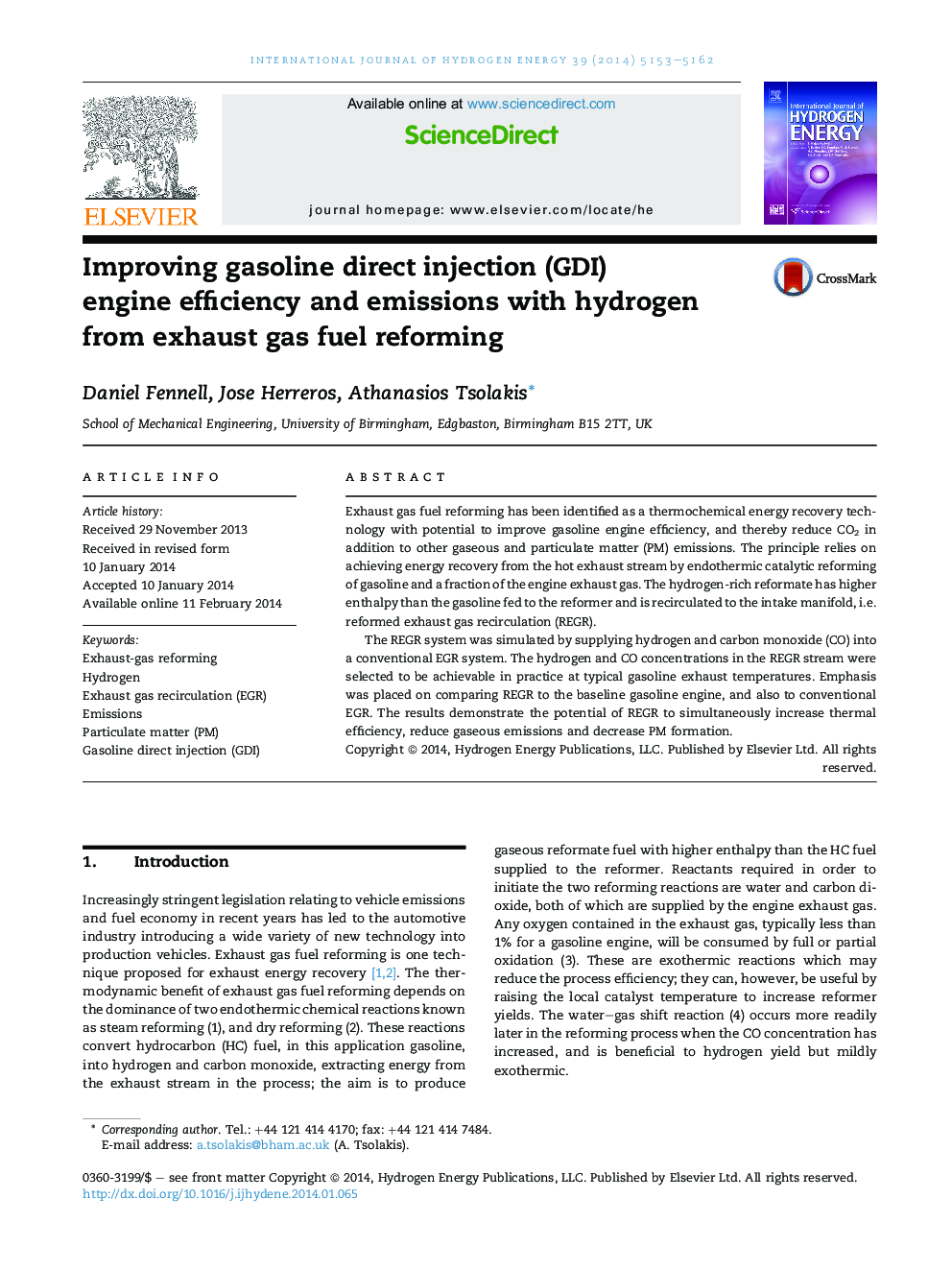| کد مقاله | کد نشریه | سال انتشار | مقاله انگلیسی | نسخه تمام متن |
|---|---|---|---|---|
| 1281284 | 1497499 | 2014 | 10 صفحه PDF | دانلود رایگان |

• Both EGR and REGR can increase the engine thermal efficiency and reduce emissions.
• REGR can outperform EGR due to extension of the dilution limit.
• REGR reduces particulate emissions, similarly to EGR but enhanced by hydrogen.
• Variable cam timing can extend tolerance to REGR and further increase efficiency.
Exhaust gas fuel reforming has been identified as a thermochemical energy recovery technology with potential to improve gasoline engine efficiency, and thereby reduce CO2 in addition to other gaseous and particulate matter (PM) emissions. The principle relies on achieving energy recovery from the hot exhaust stream by endothermic catalytic reforming of gasoline and a fraction of the engine exhaust gas. The hydrogen-rich reformate has higher enthalpy than the gasoline fed to the reformer and is recirculated to the intake manifold, i.e. reformed exhaust gas recirculation (REGR).The REGR system was simulated by supplying hydrogen and carbon monoxide (CO) into a conventional EGR system. The hydrogen and CO concentrations in the REGR stream were selected to be achievable in practice at typical gasoline exhaust temperatures. Emphasis was placed on comparing REGR to the baseline gasoline engine, and also to conventional EGR. The results demonstrate the potential of REGR to simultaneously increase thermal efficiency, reduce gaseous emissions and decrease PM formation.
Figure optionsDownload as PowerPoint slide
Journal: International Journal of Hydrogen Energy - Volume 39, Issue 10, 26 March 2014, Pages 5153–5162